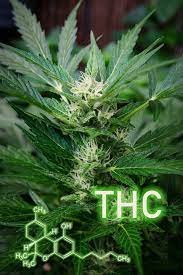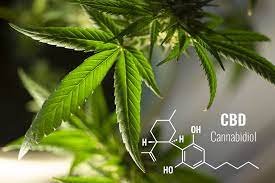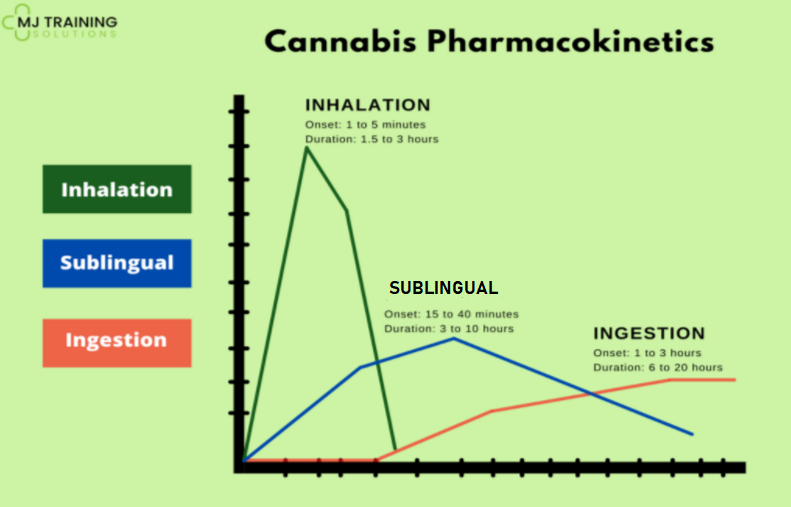Sleep and Medical Cannabis
According to the American Sleep Association, 50 to 70 million adults in the United States suffer from a sleep disorder. Insomnia is the most common sleep disorder, 10% of adults report having chronic insomnia, and approximately 30% report having short-term issues. Cannabis has been used to aid with sleep for thousands of years, and it was a well known sleep remedy in several ancient cultures.
A study published in the Journal of Psychoactive Drugs, surveyed 1,000 dispensary customers in Colorado. 74% of those surveyed reported using cannabis to improve sleep. Of those using cannabis for sleep, 84% found it “very” or “extremely helpful,” and many of those patients reported stopping the use of prescription and OTC sleep medications.
Watch our Video on Medical Cannabis and Sleep to Learn More!
Sleep & Cannabis: Know the Components of Cannabis
THC - Tetrahydrocannabinol
Cannabis contains chemicals called cannabinoids that interact with the human body’s natural endocannabinoid system. THC, or tetrahydrocannabinol, is one of the two major cannabinoids. THC may help patients fall asleep faster. A small trial compared different doses of THC in insomnia patients. The 20 mg dose produced the best results in reducing the time needed to fall asleep. The average improvement was 62 minutes faster than placebo.
THC seems to help with obstructive sleep apnea as well. Dronabinol is a synthetic version of THC, and it was used in a sleep apnea study reported in 2016. The study compared a placebo, a 2.5mg dose, and a 10mg dose. These were taken 1 hour before bedtime for 6 weeks. The 10mg dose reduced the apnea-hypopnea index by approximately 50% and produced the highest ratings of treatment satisfaction.
Cannabis appears to be most effective in treating sleep disturbances in patients with comorbidities known to be helped by cannabis, such as chronic pain, anxiety, and restless leg syndrome. Nabilone, another synthetic form of THC, was shown to improve sleep in patients with chronic pain, including patients with diabetic peripheral neuropathic pain and chronic noncancer pain. In a trial published in 2009, nabilone was studied in 47 patients with PTSD-related treatment resistant nightmares. 60% of these patients experienced complete resolution of nightmares and an additional 13% had a satisfactory reduction in symptoms.
CBD - Cannabidiol
CBD or Cannabidiol is considered the second major cannabinoid, and like THC, it also seems to have an impact on sleep. Lower doses of CBD can have a stimulating effect, while higher doses are typically sedating. A study from 1982, compared 5mg of a benzodiazepine with different doses of CBD. While the benzodiazepine had no effect, the 160mg dose of CBD taken 30 minutes before bed significantly increased the number of hours slept.
Minor Cannabinoids and Terpenes
There are other components in cannabis that may affect sleep as well. In addition to THC and CBD, over 130 minor cannabinoids have been identified, and several have shown promise in causing relaxation. The minor cannabinoid, CBN, may add to the sedating effects of THC.
Another class of chemicals found in Cannabis are the terpenes. Terpenes contribute to the flavor and aroma of cannabis, and some terpenes do provide medical benefits. Several of these terpenes seem to help with sleep, such as linalool and myrcene.
Categories of Cannabis Strains
In most dispensaries, cannabis strains are generally separated into 3 categories: Sativa, Hybrid, and Indica. Typically, the Indica strains are going to be more sedating than strains in the other categories. Indica strains were originally shorter and bushy plants with broad leaves, and they were found in the mountainous regions of India, Pakistan, and Afghanistan. Strains classified as Indica are more calming, soothing, and sedating.
Choosing Dosage Forms
The different dosage forms of Cannabis have different onsets, delays, and durations. Combining dosage forms can be more effective.
Medical cannabis comes in several types of dosage forms. Fast acting products, such as the inhaled forms of Cannabis, seem to work best for helping patients fall asleep.
In general, patients inhaling an Indica strain of cannabis, 15 to 20 minutes before bed, have experienced the best results in falling asleep.
Many patients struggling with staying asleep find relief by adding a longer-acting dosage form before bed. As you can see in the graph, the inhaled form of Cannabis has a quick onset, but it only lasts 1.5 to 2 hours. A longer acting product, such as a capsule or tincture, can help carry the patient throughout the night.







